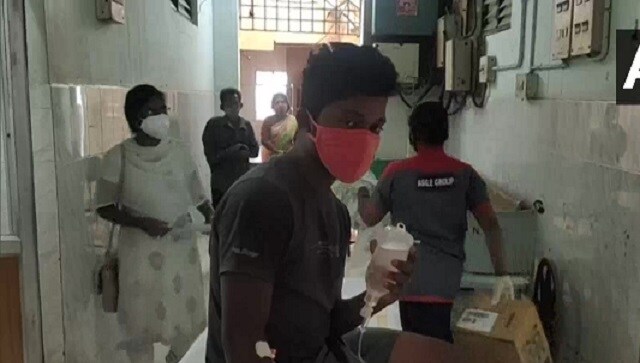

It is the Supreme Court which let us down," Advani said. "I am not inclined to agree that the judiciary as a whole succumbed during the Emergency. The BJP patriarch said it would be incorrect to say that the whole judiciary had failed us during the Emergency, it was the Supreme Court that had really let down everybody. New Delhi, Jun 28: Senior BJP leader LK Advani on Thursday said the Supreme Court "had really let down everybody by failing to stand up" against the government during Emergency. "My thoughts and prayers are with his bereaved family.Follow us on advani supreme court had let us down during emergency Home Minister Rajnath Singh said Nayar's contribution to journalism will be remembered. "His strong stand against the Emergency, public service and commitment to a better India will always be remembered," Modi tweeted. Frank and fearless in his views, his work spanned across many decades." Tributes poured in from all corners for Nayar with Indian Prime Minister Narendra Modi describing him as an "intellectual giant of our times. Nayar has covered several historical events from the 1971 war with Pakistan to liberate Bangladesh to the Emergency of 1975. "From his perilous journey to a new country and to his first job as a young journalist in an Urdu daily, Nayar's account is also the story of India," the introduction to the book reads. In his autobiography published in 2012, Nayar wrote about the collapse of trust between communities after the Partition and how he was forced to migrate to Delhi. "My aim was to show the history of the Partition and post-Independent India through the journey of a man who has been the nation's conscience keeper," Meera had said. Widely known for his columns, he wrote for newspapers both in India and outside including The Daily Star.Ī documentary called "In His Inner Voice: Kuldip Nayar"was made by Meera Dewan, a filmmaker, for government of India's Films Division.

He later headed various newspapers in Delhi. Nayar was a votary of strong relationship between India and Pakistan and led candle marches of peace activists on the Independence days of Pakistan and India at the Attari-Wagah between the two countries near Amritsar almost every year without fail.īorn in Sialkot, now in Pakistan, in 1923, Nayar graduated in law and studied journalism and began his career with an Urdu newspaper Anjam. He had also taken to the streets along with other leading names of Indian journalism like K R Malkani and Khushwant Singh, against the Defamation Bill brought by the Rajiv Gandhi government in late eighties.

Nayar was among the journalists who had staunchly opposed the Emergency imposed by the then prime minister Indira Gandhi in 1976-77 and suffered imprisonment for leading a protest against that. Nayar also served as High Commissioner of India to the United Kingdom in 1990 and was a member of the Rajya Sabha, upper House of Indian parliament, in 1997.


 0 kommentar(er)
0 kommentar(er)
